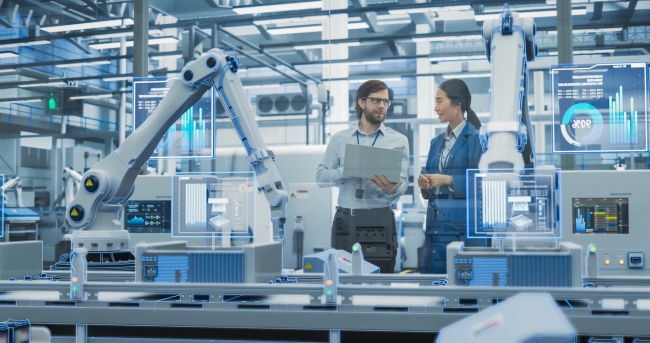2 min read • published in partnership with Moore Kingston Smith
Insight: People – The real power tool in UK manufacturing
Thursday 25 September marked Make UK’s National Manufacturing Day, where manufacturers opened their doors to local communities to showcase the different opportunities in the manufacturing sector. While the focus often lies on inspiring the next generation of robotics specialists, precision engineers, and digital creatives, consider your HR proposition.
Machines, however advanced, are only as effective as the people who operate and maintain them. Without skilled, motivated employees, even the most sophisticated systems will stall.
Robust human resources support within the manufacturing sector extends beyond mere contractual and policy adherence. It is essential for cultivating a UK workforce that is safe, highly skilled, and prepared to meet future industrial demands.

The human challenges facing UK manufacturing
The UK manufacturing sector faces challenges, notably a critical skills gap. Experienced staff are retiring, while fewer young people are choosing technical careers, which poses a substantial threat to the future availability of essential roles such as operators, toolmakers, and engineers. Addressing this requires the development of robust talent pipelines, comprehensive apprenticeship programmes, and effective reskilling initiatives.
Furthermore, the departure of trained staff results in the loss of valuable expertise, disrupts production efficiency, and incurs substantial costs associated with recruitment and retraining, all of which impact already constrained profit margins. At the same time, stringent adherence to the UK’s strict health and safety standards is fundamental. Human Resources plays a vital role beyond mere compliance, fostering a culture where safety protocols not only protect employees but also contribute to sustained productivity.
The strategic importance of human resources in UK manufacturing
Effective human resource management is an underlying principle to the operational efficiency and strategic advancement of the UK manufacturing sector. Strategic HR in this context encompasses:
• Talent acquisition and retention: Facilitating the attraction and retention of critical talent through structured apprenticeship programmes, enhanced employer branding, and the establishment of clear career progression pathways.
• Workforce development: Driving the upskilling and reskilling of the workforce to effectively integrate and leverage advancements associated with Industry 4.0, including robotics and digital systems.
• Regulatory compliance: Ensuring stringent adherence to UK employment legislation, health and safety standards, and collective bargaining agreements, thereby mitigating legal and operational risks.
• Employee engagement and innovation: Fostering a culture of high employee engagement and innovation, which encourages proactive commitment to quality assurance, safety protocols, and continuous operational improvement.

Integrated effectively, HR acts as a strategic partner, going beyond a purely supportive function and becoming a pivotal driver of organisational growth, resilience, and competitive advantage within the manufacturing landscape.
HR ensures your strongest asset – your workforce – stays safe, skilled, and motivated, keeping UK manufacturing globally competitive.
Contact Moore Kingston Smith HR Consultancy for more information.
Questions for UK manufacturing leaders
• If your people were your machine, what condition would they be in: well-oiled or overdue for maintenance?
• Where are you investing more: in upgrading your equipment, or in developing your workforce?
• What opportunities could open if HR were fully integrated into your production and growth strategy?